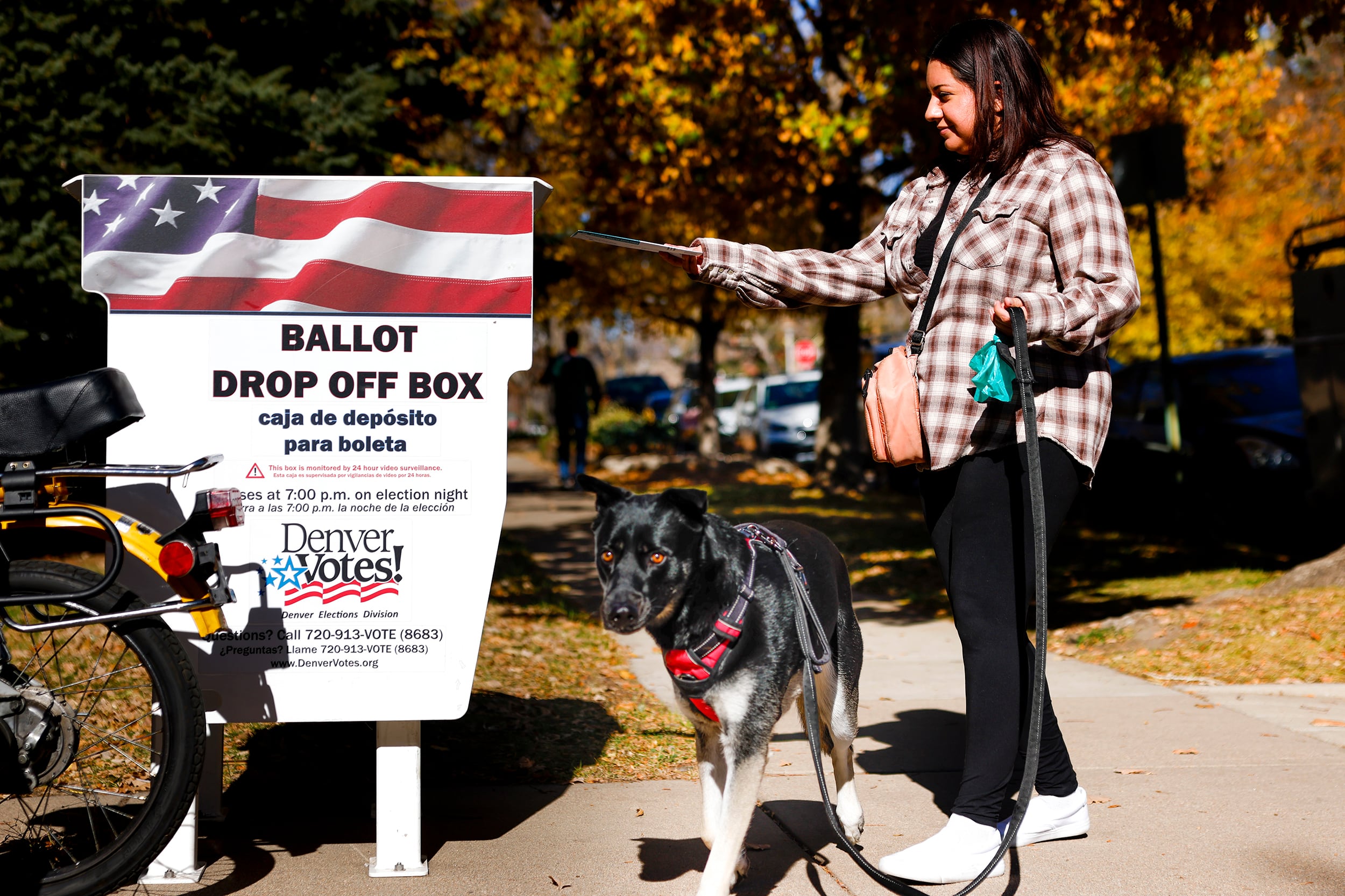Sign up for Chalkbeat Colorado’s free daily newsletter to get the latest reporting from us, plus curated news from other Colorado outlets, delivered to your inbox.
Candidates and outside groups spent $2.2 million in November’s Denver school board election, according to final campaign finance reports.
That total surpasses spending in the last board election in 2021 and nearly ties the all-time record of $2.3 million spent in 2019.
The cost of Denver school board races has increased over the years as outside groups have poured more money into helping elect candidates that align with their views.
Groups and donors supportive of education reform and charter schools outspent the Denver teachers union 5 to 1 for the 2023 election. It’s a familiar strategy that hasn’t always paid off. But this year, it did.
This year’s election result was a mandate for change on a board that has been criticized as dysfunctional in a year when Denver schools experienced a spike in gun violence.
With three board seats up for grabs, voters ousted two incumbents who were backed by the Denver teachers union, instead choosing challengers endorsed by a pro-charter group. In a third race that didn’t have an incumbent, voters chose the candidate aligned with the challengers.
The result was a total loss for the union-backed candidates, ending a two-year streak where all seven Denver school board members had been endorsed by the teachers union.
Though concerns over school safety and criticism of the board’s infighting dominated the rhetoric this election, the spending fell along the familiar lines of union versus reform.
As usual, the bulk of the spending was by independent expenditure committees, which cannot coordinate with the candidates. Only two committees spent money in Denver this year: one union-funded and one funded by reform groups and donors. That’s a change from past elections, when different reform organizations each set up their own committees.
The streamlined approach on the reform side resulted in a single deep-pocketed committee — Better Leaders, Stronger Schools — that spent a whopping $1.4 million in support of the three winning candidates: John Youngquist, Marlene De La Rosa, and Kimberlee Sia.
Much of the funding for Better Leaders, Stronger Schools came from a group called Denver Families Action, which is the political arm of a relatively new organization called Denver Families for Public Schools. Its board is made up of local charter school leaders.
But individual donors gave to the committee, too. Kent Thiry, the former CEO of dialysis provider DaVita, contributed $350,000 to Better Leaders, Stronger Schools.
Better Leaders, Stronger Schools spent big on digital ads and mailers, including one that was decried as racist. It also ran TV ads, which was a first for a Denver school board race.
By comparison, a union-funded committee called Students Deserve Better spent about $155,000 on digital ads and mailers for candidates Kwame Spearman, Charmaine Lindsay, and Scott Baldermann, all of whom lost. The Denver and Colorado teachers unions also gave money directly to the candidates for a total investment of about $286,000.
The candidates themselves spent far less than the committees. The candidate who spent the most was Baldermann, who lost his bid for reelection to a seat representing southeast Denver’s District 1. Baldermann spent about $156,000, much of it his own money.
The candidate who spent the least was Adam Slutzker, who ran unsuccessfully to represent northwest Denver’s District 5. Slutzker was not endorsed by either the teachers union or by Denver Families Action. He spent a total of $117.
Youngquist, De La Rosa, and Sia were sworn in to the board on Dec. 1.
Melanie Asmar is the bureau chief for Chalkbeat Colorado. Contact Melanie at masmar@chalkbeat.org.







